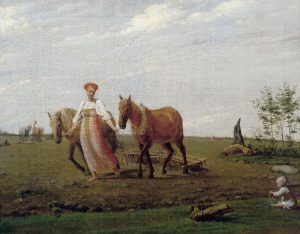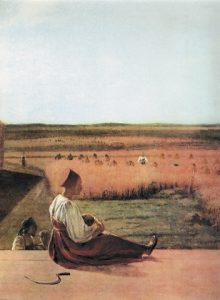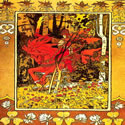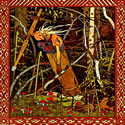With the collapse of the Soviet Union, the walls preventing Russians to leave the country also collapsed, making the West more accessible than it ever was before for a multiple generations. This is represented in Window to Paris, by a magical window allowing Russian inhabitants of an apartment to travel to Paris for a limited amount of time. This is an ingenious device to analyze the modern situation as well as providing a stark contrast between the two countries.
As one would expect, people are much better off in the West and Kolya’s friends are able to make a lot of money when they are able to harness their entrepreneurial skills in Paris. Things are also visually more appealing in the West and the political atmosphere is peaceful. But the film also manages to satirize the capitalism of the West in two ways. The first being the stinginess of people in capitalist societies. They have an excess of products (while the Russians have barely enough to survive), but will waste it if they are not paid for in their full price. The other being this kind of moral decay that comes with excess and too much freedom. This is depicted in the “prestigious” society where they play the great classics but without pants to a nude audience; implying the purity of the classics are being tarnished because of their use in orgies.
This all is contrasted to the moment when the French woman is trapped on the other side of the window and bares witness to the vastly different living conditions in Russia. The beauty and peace you found in Paris is gone, it’s cold, the streets are dirty, there’s political turmoil, and she’s taken advantage of and robbed. Understandably, she wants to get out as soon as possible, she’s a wreck in prison by the end of her experience there. Despite this however, there is something in the Russian adults that tie them to their motherland that prevents them from completing emigrating to France, despite their monetary success.
The most touching scene is when Kolya is talking to the children who have briefly tasted the better life in Paris and want to stay here and leave everything in Russia behind. They argue that with all the opportunity in the West, they will be able to better provide for their families here than in the West. And this is representative of the younger generations who started to leave the country to find better lives in the West in the real world. And Kolya has to tell them that they are the one’s that can make Russia a better place to live in, they are literally the future of the country and they can bring about positive change.
The ending however is Kolya suspecting that there is another window to the West behind this massive wall is trying to break the wall down. This leaves me to conclude that although one must be critical of the West in some aspects, it is in the country’s best interest to change itself as to be more like the West, and be prosperous and peaceful.



 :
: